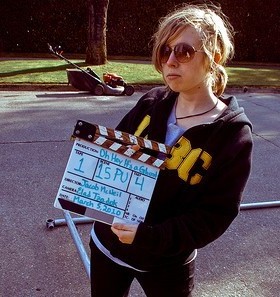Writerly Advice That Is Worth Listening To
It’s often difficult for writers to stand back and see the flaws in their story, and not every bit of advice is going to be right on. In fact, a lot of advice from even the smartest, well-meaning, and honest critique partner can steer us wrong. It’s up to each writer to get in touch with that place inside that confirms or convicts regarding the wisdom of the advice given.
In a Multitude of Counselors There Is Wisdom
If you’re not sure some specific advice is right on, and your body just isn’t “telling you” one way or another, you can usually bet that if more than a few test readers or critique partners point out the same issue in your manuscript as being problematic, they are probably onto something.
There may be numerous ways to fix that problem, though, and again—you need to go with the solution that feels right to you. Be open and receptive to ideas, but own your story.
So now I’m going to share some tips from famous writers that I think are great. You are free to disagree. But hopefully some of you will see the wisdom in these words. May they encourage you in your writing journey!
“If you don’t have time to read, you don’t have the time—or the tools—to write. Simple as that.” ~ Stephen King
I’m a big advocate for reading. This is huge to me. Writers should read a lot and widely. They should read different genres, not just the one they are writing in.
Read with an aim of learning technique and craft. Highlight passages (if you don’t mind “desecrating” books) and take notes on how the writer achieved some effect that impresses you. Jot down vocabulary words you like and want to use.
See how a great writer balances narration, backstory, dialog, action. View reading as your homework assignment, unless you are just reading to relax and escape (and that is important to do at times).
Discovering a great book is like unearthing a rare gemstone. Don’t miss the opportunity to study it carefully and understand why it’s such a great book. Sometimes the most brilliant books seem like they were effortlessly written.
They weren’t. And by desconstructing or taking scenes apart one by one, you can get to the craft underlying the magic.
“Abandon the idea that you are ever going to finish. Lose track of the 400 pages and write just one page a day, it helps. Then when it gets finished, you are always surprised.” ~ John Steinbeck
I totally relate to that feeling of surprise every time I finish a novel. I ask, “How in the world did I get here? How did the end come so quickly?”
To a new writer, the idea of writing an entire novel is daunting. Instead of letting the hugeness of such an endeavor stymie your creativity, take it one page at a time, one scene at a time.
My husband used to say this to our daughters when they were overwhelmed with a big school project they had to tackle: “How do you eat an elephant? One bite at a time.” Break the elephant down into bite-sized bits.
Steinbeck’s advice of ignoring the finish line is a great way to psyche yourself out. Set small goals for yourself when you sit down to write. My goal is often to write one scene. I pick up the index card for the scene I next need to write and I write that, however long it takes. If I get it done sooner than expected, I might write another scene or two. And then I’m very satisfied with my day’s work.
Somehow, after a number of weeks, I’m on that last scene and I write “The End.” It really happens.
“Begin with an individual, and before you know it you have created a type; begin with a type, and you find you have created—nothing.” ~ F. Scott Fitzgerald
If you’ve been following my blog for a while, you know I’m a stickler for genuine, unique characters. One of the most common flaws I see in the manuscripts I critique and edit is the lack of originality of characters. So many are stereotyped and shallow. Real people are complex, contradictory, confusing and often confused and conflicted.
If you want some tips on how to create some really original characters, read my posts on the topic (just put in “characters” in the search bar).
“To produce a mighty book, you must choose a mighty theme.” ~ Herman Melville
Okay, some of you are going to disagree with this. Some people write some great novels without any themes running through them. Some novels, as I’ve discussed in past posts, are written solely for fun and entertainment, and that’s perfectly valid.
But if you want to write a compelling, unforgettable novel or short story, you really need a theme or two. Themes elevate your story from basic plot to deep significance. Melville’s Moby Dick proves the truth of his advice. The themes evident in that novel have made it a classic for more than 150 years.
Want your novel to become a classic that stands the test of time? Go big with theme. (For more thoughts on infusing your novel with themes, read some of my posts on the topic).
“No tears in the writer, no tears in the reader. No surprise in the writer, no surprise in the reader.” ~ Robert Frost
This is all about putting your passion into your writing. Check out this post if you want to know how to tap into passion.
“Get it down. Take chances. It may be bad, but it’s the only way you can do anything really good.” ~ William Faulkner
A lot of great writers advise you turn off your internal (infernal) editor and just write. You will never become a great Ping-Pong player like Forrest Gump if you never pick up the paddle and hit a lot of balls. Practice may not always make perfect, but it does make better.
Not surprisingly, Getting good at writing requires you actually write. Journaling can be a great way to let the writing juices flow if you are having trouble with that critic on your shoulder. If you know what you are writing may never be seen by anyone else, you often give yourself permission to be creative and go a bit crazy.
Sometimes magical things happen when you let loose your creativity. Freewriting in the voice of a character just for fun can often reveal neat things about your character and his voice you never expected. Trust that your subconscious has a lot of chops. You need to let it out of its cage from time to time. This has proven great advice to me.
Maybe you have a few gems of wisdom about writing you’d like to share with other authors. Let’s hear them! Maybe what works for you will work for someone else. And someday, if you become super famous as an author, you can give out pithy advice that others will follow. Hopefully, though, they’ll follow it because it works for them.
Featured Image by Andrew Martin from Pixabay












Tend to agree with all of these observations. At some point, don’t nearly all of us need to hear/read and accept the wisdom embedded in them? Just one broken-down, baggy-eyed old warrior’s take…
I suspect this is all good advice and I try to follow most of it when I may. All of the above quotes are from writers I have enjoyed reading or who have “moved” me. Lol- I hate that word, I can just see Faulkner and Melville carting my furniture into a hire van “where d’ya want this sofa guv”, Says Melville with a curious accent.
One of my favourite quotes comes from Cixin Liu, who wrote amongst other novels “The Three Body problem” (big new series on Netflix next year) who states. “I started to write an anthropological discussion on the “Cultural revolution” but it was flawed by my thoughts. Then I realized that the flaws were the real story.
Sorry to bring it back to your first idea on flaws. I suppose we never truly know what will make a great tale until we have written it. Lol- if we ever do.